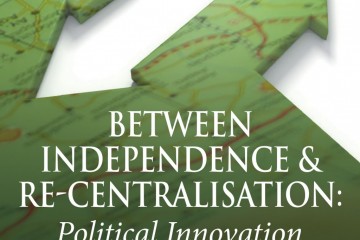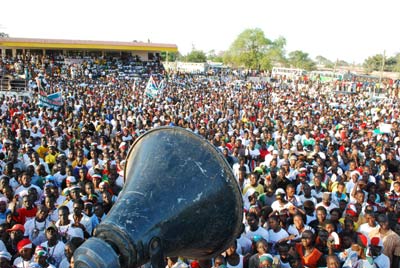
Predisposed Tabula Rasa
Studies of human behavior and psychology have received extensive attention in public policy. Economists, social theorists and philosophers have long analyzed the incentives of human actions, decision making, rationality, motivation, and other cognitive processes. More recently, the study of happiness furthered the debate in public policy, as many governments brought up the necessity for new measures of social progress. The discussion was bolstered when the UN passed a critical resolution in July 2011 inviting member countries to measure the happiness of their people as a tool to help guide public policies. It was also hoped that discussions about happiness would serve to refine the wider debate about the UN Sustainable Development Goals for 2015-2030 and the standards for measuring and understanding well-being. The World Happiness Report, a recent initiative, attempts to analyze and rate happiness as an indicator to track social progress.
These recent initiatives serve as reminders that sound public policies must evolve in strong connection with an understanding of human psychology, emotions and the sources of happiness and satisfaction. Nevertheless, there are further invaluable insights from neuroscience that have remained less explored. Contemporary neuroscientific research and an understanding of the predispositions of our neurochemistry challenge classical thought on human nature and inform us of fundamental elements that must accompany good governance.

‘The first chapter’: Magna Carta and British socialism’s struggle for freedom in late Victorian and Edwardian Britain
The British socialist and labour movements of the late nineteenth- and early twentieth-century chose to view Magna Carta as an important symbol to invoke in their own struggles against the current system and its abuses. The Shadow Education Secretary, Tristram Hunt, recently announced that if Labour are returned in the upcoming general election every school will be required to teach the history of Magna Carta. He is keen to ensure that ‘every school child is taught the medieval past and modern power of this heroic charter’. Unsurprisingly, this declaration caused a variety of responses from those within his own party and those on the left more generally. For a number, Magna Carta should not be celebrated in this way, for …

‘Devo Manc’: ‘Northern Powerhouse’ or ‘Northern Poorhouse’?
Centralisation has certainly failed, but the promise of devolution to Greater Manchester is being massively hyped. Manchester is a great world city which has long divided observers. In the mid-nineteenth century, what was for de Tocqueville a ‘foul drain’ and for Taine ‘Babel built of brick’ was for the Edinburgh Review, by contrast, ‘foremost in the march of improvement, a great incarnation of progress’. Most recently, with ‘devo Manc’, the city of 1980s de-industrialisation and indie music has been transmuted into a symbol of post-industrial regeneration and devolved government. All this is being talked up as a matter of electioneering by the Treasury and Westminster politicians. After all, the coalition government must be seen to have a policy on ‘rebalancing …

The Cambridge Election Podcast
From the University of Cambridge comes ELECTION, a weekly politics podcast; asking the questions that no one else is in the run-up to the British General Election with the most interesting people inside and outside the political arena. Here below are the sixth and the seventh podcasts.
#6 – Rae Langton on Charlie Hebdo, hate vs free speech & blasphemy
What constitutes hate speech? Does the Press do more harm than good in our democracy? When should words become the government’s business? We put these questions to Professor Rae Langton – award-winning philosopher and the world’s ‘fourth most influential woman thinker’ – and discuss whether free speech can ever be reconciled with a need to suppress hateful voices. The team then discuss the fallout of Ed Miliband’s ‘second kitchen’, whether politicians can – or should – keep their families out of the media spotlight, and the lessons from the Israeli election result.

Is federalism a viable option in Spain?
The Spanish state has been suffering from a deep crisis for several years, as Basque and Catalan claims for the ‘right to decide’ have clearly illustrated. Thus, it’s hardly surprising that the federalist option has been rediscovered as a way to solve the problems of the ‘State of Autonomies’. Is federalism a realistic solution?
To answer this question, two aspects should be considered: 1) the potential of federalism as a solution to the specific problems linked to national pluralism; and 2) the viability of federal reform in Spain.
1. Federalism and national pluralism
Federal studies have been considerably revived over the last 20 years and have abandoned some of their former beliefs or convictions. Federalism is not a panacea for solving problems of national pluralism in democratic contexts. Nor is federalism is a project necessarily concerned with national diversity (see Seymour and Laforest 2001: 9-10). This renewal has been greatly motivated by the difficulties encountered in advanced democratic systems (Canada, Belgium, Spain, to give a few examples) to reconcile deep diversity with the specific demands of the democratic principle. That is what Carl Schmitt already referred to in 1928 (2003: 356) when he emphasized the necessity of (existential) cultural and political homogeneity to ensure the stability of federal states. Empirical evidence confirms the German jurist’s theory. The great majority of federations, including those which started with important cultural and political diversity, evolved towards a form of Unitarian federalism which, in its fundamental aspects, eventually adopted the shape of the dominant State, the Nation-State (one State, one people). Schmitt refers to this federal form as ‘the federal State without federal bases’ (2003: 368). In the most recent specialized literature calls this type of federalism ‘territorial federalism’, that is to say a way to organize the political power of a single people or nation from a legal and territorial point of view (otherwise known as a monistic theory of federalism; see Karmis and Norman 2005: 3-17).

The perils of Turkish presidentialism
With Recep Tayyip Erdoğan sworn in as Turkey’s first popularly elected president last August, the debates on adopting a presidential system have once again come to the forefront in the run-up to the Turkish general election in June. The most important implication of the election will be whether it will lead to a formal move toward presidentialism in Turkey’s constitution.
Prior to the election, Turkey’s political system was admittedly complex. In 2007, Abdullah Gül, Erdoğan’s predecessor, was the last to be elected under the former system, in which parliament elected the president. He took office following a strained process between the Justice and Development Party (AKP), the Turkish Armed Forces, and the Republican People’s Party (CHP). The first presidential election in April was boycotted by the CHP. The Chief of the General Staff of the army made statements expressing the wish for a sincerely secular president, and published an e-memorandum warning against emerging disputes regarding the secular nature of the Turkish republic in the context of the election. Eventually, the AKP called an early general election in July, after which the presidential election was re-held in August.
As a further response to the crisis, the AKP held a referendum in October, ensuring the popular election of the president. Thus, Turkey remained a parliamentary system with a ceremonial president until the first popular presidential election was held, and Erdoğan was elected last year. Now, the system has become semi-presidential with both a popularly elected president and a prime minister responsible to the legislature. Crucially, the president does not hold substantial executive powers.

Secession and liberal democracy: the Catalan case
In Spain, the 1978 Constitution was the legal outcome of a political transition to a democracy, following the horrors of civil war and dictatorship. Among other things, it established a territorial model – the so-called “Estado de las Autonomías” (State of Autonomous Communities) – which was in principle designed to satisfy the historical demands for recognition and self-government of, above all, the citizens and institutions of two minority nations: Catalonia and the Basque Country. This territorial model occupies an intermediate position between the classic federal and regional models of comparative politics, but has more regional than federal features.
Yet thirty-six years later, many Catalan and Basque citizens and political and social actors show a deep disappointment regarding the development of this territorial model – in terms of collective rights, political recognition and self-government.
A movement for change
In recent years, support for independence has increased in Catalonia. Different indicators show that pro-independence demands are endorsed by a majority of its citizens, political parties and civil society organizations. This is a new phenomenon. Those in favour of independence had been in the minority throughout the 20th century. Nowadays, however, demands of a pro-autonomy and pro-federalist nature, which until recently had been dominant, have gradually lost public support in favour of demands for self-determination and secession. The following graph shows this recent trend.

The rise of populism in Southern Africa’s dominant party states
Over the past two decades the countries in southern Africa have generally had ‘dominant party systems’. Such party systems consist of one large ruling party which is dominant, in terms of seats in the national assembly or incumbent advantages, and a number of small opposition parties. The literature on dominant parties (Bogaards, 2004 and Greene, 2007) and competitive authoritarianism (Schedler, 2009 and Levitski and Way, 2010) provide useful insights for understanding the party politics of the region. The dominant party is usually a former liberation movement which fought to end colonialism or white minority rule. Nicholas van de Walle observes that opposition parties in the region lack the financial and organisational ability to compete with the incumbent advantages of ruling parties. As such, they remain small and fragmented. The dominant parties in southern Africa maintain their hold on power through a mix of co-option and coercion and are not unlike their counterparts in other competitive authoritarian states such as Mexico, Argentina and Russia. For example, mass political rallies are held to demonstrate the ruling party’s extensive support base. People are allegedly enticed to rallies with gifts in cash or kind. In addition state media are manipulated to give the ruling party more coverage and draw attention to its achievements and the government attempts to control the media through regulation or intimidation.









